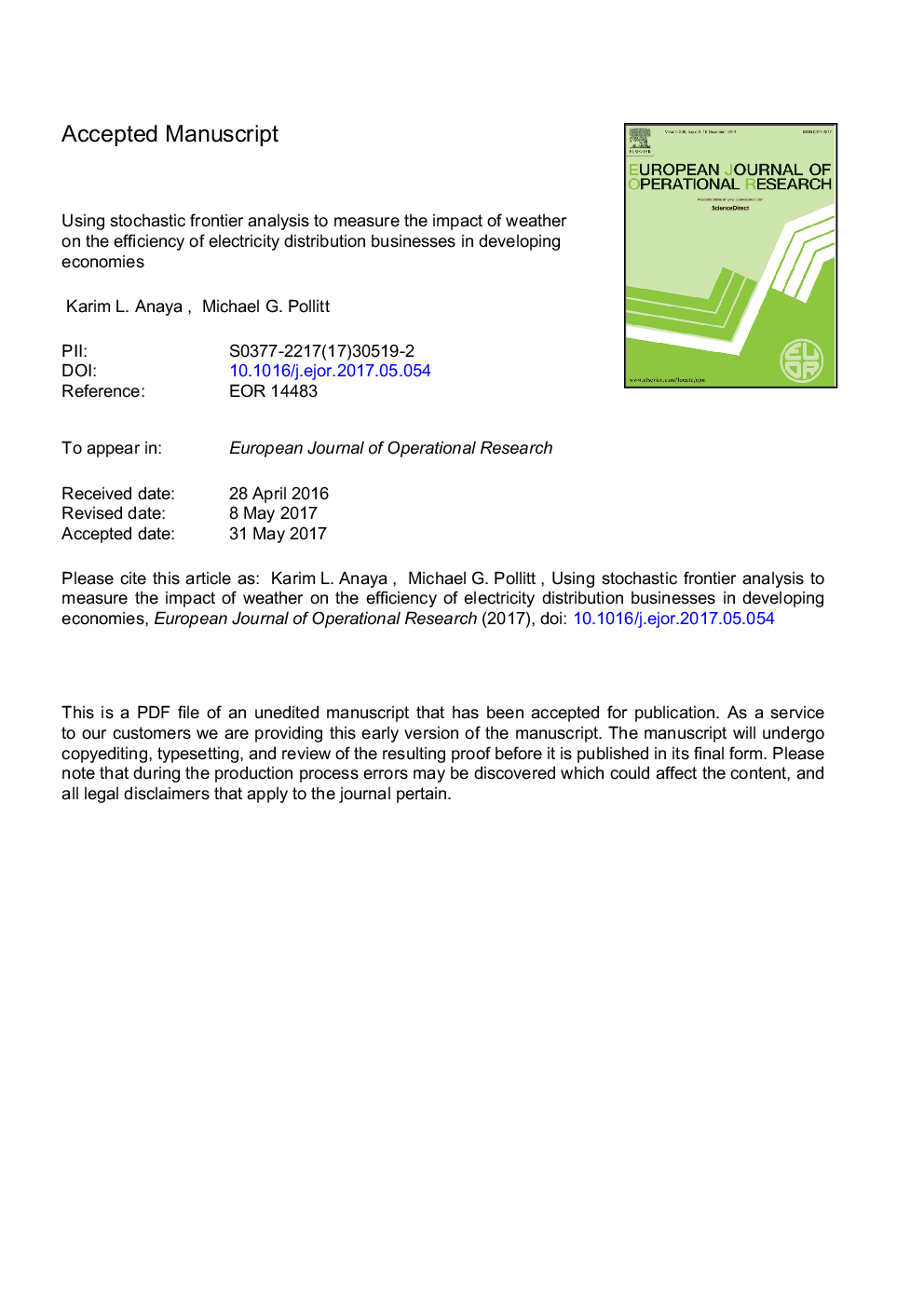ترجمه فارسی عنوان مقاله
با استفاده از تجزیه و تحلیل مرزی تصادفی برای اندازه گیری تاثیر آب و هوا بر بهره وری از شرکت های توزیع برق در کشورهای در حال توسعه
عنوان انگلیسی
Using stochastic frontier analysis to measure the impact of weather on the efficiency of electricity distribution businesses in developing economies
| کد مقاله | سال انتشار | تعداد صفحات مقاله انگلیسی |
|---|---|---|
| 102734 | 2017 | 38 صفحه PDF |
منبع

Publisher : Elsevier - Science Direct (الزویر - ساینس دایرکت)
Journal : European Journal of Operational Research, Volume 263, Issue 3, 16 December 2017, Pages 1078-1094
ترجمه کلمات کلیدی
اقتصاد، کارایی فنی، تجزیه و تحلیل مرزی سنگکاست، بازار توزیع برق، آب و هوا،
کلمات کلیدی انگلیسی
Economics; Technical efficiency; Stocastic frontier analysis; Electricity distribution markets; Weather;

